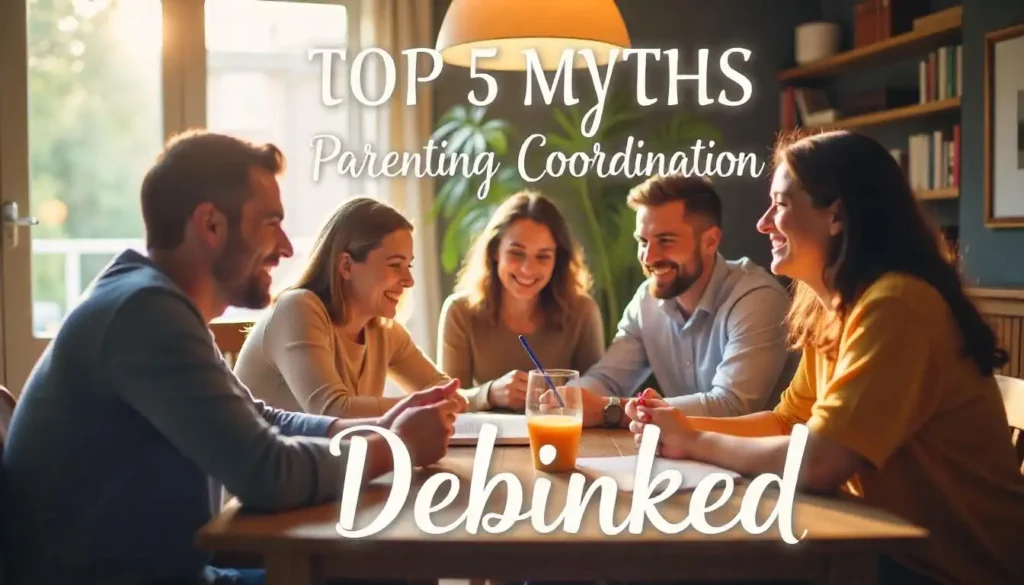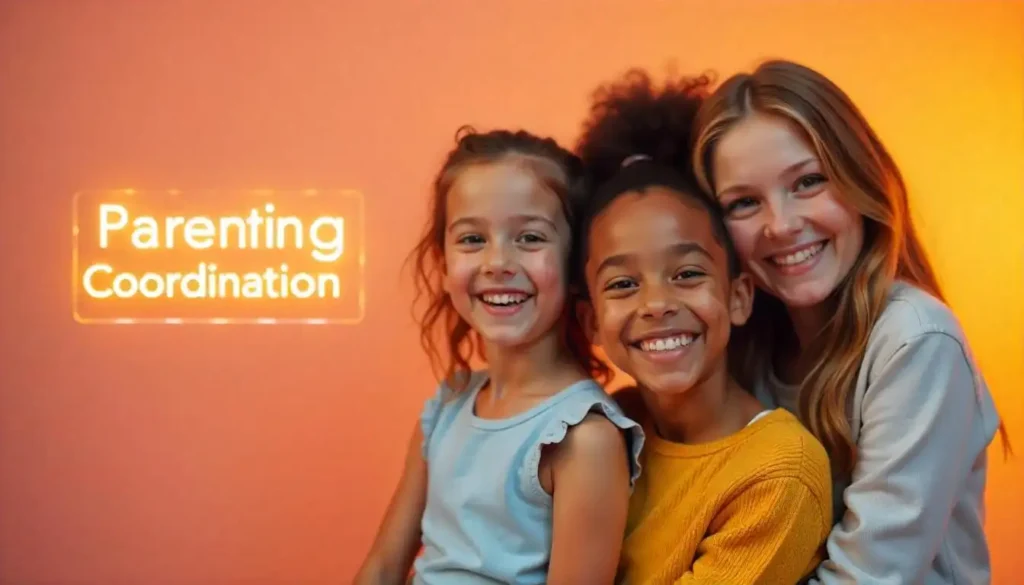Top 5 Myths About Parenting Coordination Debunked
Navigating family disputes, especially after a separation or divorce, can be emotionally exhausting. Parenting coordination is an effective tool to help separated parents communicate better, resolve disputes, and stay focused on the best interests of their children. However, despite its growing popularity in New South Wales (NSW) and beyond, several myths surround the process.
At Lyon Legal Services, based in Inverell, we believe in empowering families with the right information. In this article, we’ll debunk the Top 5 Myths About Parenting Coordination and explain why it might be the best step forward for your family.
What Is Parenting Coordination?

Before we dive into the myths, let’s quickly clarify what parenting coordination is.
Parenting coordination is a child-focused process where a trained neutral professional, known as a parenting coordinator, helps separated or divorced parents manage and resolve ongoing parenting disputes without returning to court. It blends family law expertise, mediation, education, and conflict resolution skills to support smoother co-parenting.
Parenting coordination can be court-ordered or voluntarily agreed upon by the parties.
Top 5 Myths About Parenting Coordination Debunked
Myth 1: Parenting Coordinators Make Legal Decisions Like Judges
Reality:
Parenting coordinators do not replace judges or family lawyers. They do not make major legal decisions about custody, relocation, or financial matters.
Instead, they assist parents in implementing court orders or parenting plans, clarifying misunderstandings, and resolving minor disputes like changeover times, schooling arrangements, or holiday schedules.
Key Point:
Parenting coordinators facilitate agreement, but major legal decisions remain with the court or through formal legal processes if needed.
Myth 2: Parenting Coordination Is Only for High-Conflict Families
Reality:
While it’s true that many high-conflict families benefit from parenting coordination, it’s a misconception that it’s only for them.
Even families experiencing occasional misunderstandings or communication issues can benefit. Parenting coordination helps establish effective communication strategies, ensures that parenting plans are followed, and reduces stress for both parents and children.
Key Point:
Parenting coordination supports any family wanting better cooperation and fewer disputes, not just those experiencing constant conflict.
Myth 3: Parenting Coordination Is Just Another Form of Mediation

Reality:
Although both parenting coordination and mediation involve neutral third parties, they serve different purposes.
-
Mediation is usually short-term, aiming for a one-off agreement on broader issues like parenting plans or property division.
-
Parenting coordination is an ongoing service focusing on the day-to-day implementation of agreements and court orders.
If issues arise, the parenting coordinator helps resolve them in real-time, without needing to go back to court or start a new mediation.
Key Point:
Parenting coordination provides long-term, practical support, whereas mediation typically resolves one-off disputes.
Myth 4: Parenting Coordination Takes Away Parental Rights
Reality:
Engaging a parenting coordinator does not mean you lose your rights as a parent. Parents remain fully responsible for major decisions about their children’s lives.
The parenting coordinator acts as a guide and facilitator, not a decision-maker, unless very limited authority is given by a court order (such as deciding on minor day-to-day issues when parents cannot agree).
Key Point:
Parenting coordination supports parental autonomy, helping parents find their own solutions wherever possible.
Myth 5: Parenting Coordination Is Too Expensive and Not Worth It

Reality:
Many families worry about the costs involved with hiring a parenting coordinator. However, parenting coordination often saves money in the long run by preventing frequent, expensive court applications.
The emotional cost of unresolved conflict — especially for children — is far greater than the financial investment in professional parenting coordination.
At Lyon Legal Services, we offer cost-effective parenting coordination services across Inverell and NSW, ensuring families get the support they need without undue financial burden.
Key Point:
Parenting coordination is a cost-effective solution that can reduce legal fees, emotional strain, and time spent in court.
Why Parenting Coordination Matters for Families in NSW
In New South Wales, the Family Court strongly encourages separated parents to resolve disputes outside of litigation whenever possible. Parenting coordination aligns perfectly with this goal, offering:
-
Better communication between parents
-
Fewer disputes reaching court
-
More consistency for children
-
Faster dispute resolution
-
Peace of mind for the whole family
Especially for families in Inverell and regional NSW, where court access can involve delays and travel, parenting coordination provides a local, accessible solution.
How Lyon Legal Services Can Help
At Lyon Legal Services, we understand the complexities of co-parenting after separation. Our parenting coordination services are designed to:
-
Reduce family conflict
-
Improve communication strategies
-
Help parents stay child-focused
-
Assist with the practical implementation of parenting plans and court orders
We are committed to supporting families across Inverell and all of NSW with professional, empathetic, and affordable services.
Contact Lyon Legal Services Today
If you’re ready to improve your co-parenting relationship and reduce conflict, contact Lyon Legal Services today to learn more about how parenting coordination can work for your family.
Quick FAQs About Parenting Coordination
Q: Is parenting coordination legally binding?
A: Parenting coordinators help implement existing legally binding court orders or parenting agreements but do not create new legally binding decisions unless authorised.
Q: How long does parenting coordination last?
A: It varies depending on the family’s needs but often continues for 6–12 months or longer if beneficial.
Q: Can both parents talk to the parenting coordinator separately?
A: Yes. Parenting coordinators can meet with each parent individually and together as needed to support better communication.









